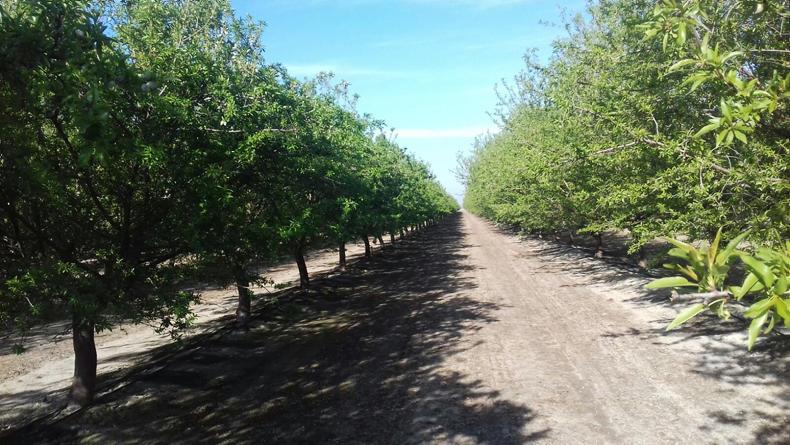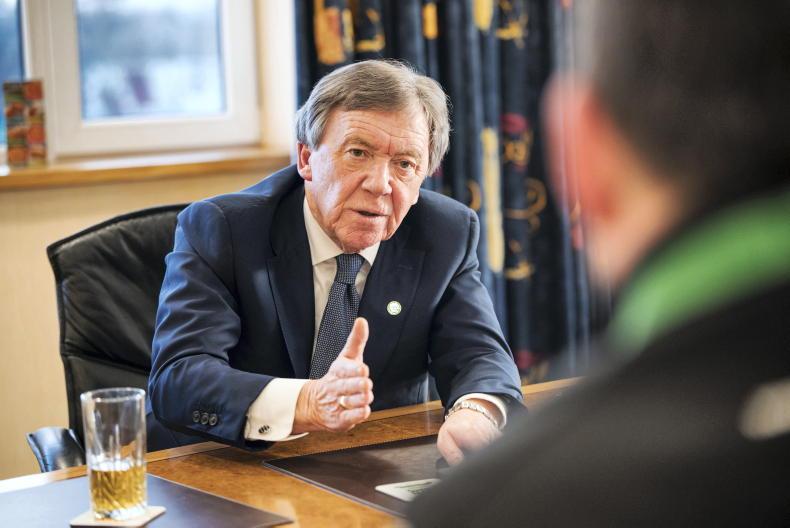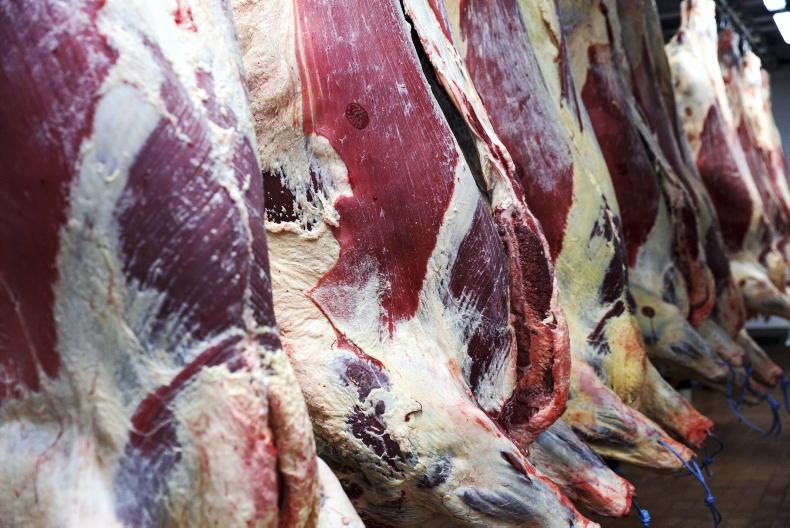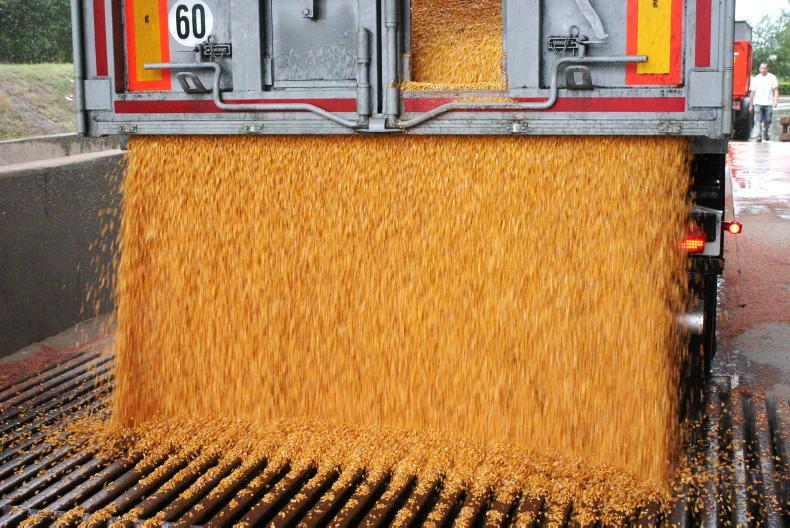I recently returned home to Co Antrim after completing the first stage of my Nuffield scholarship.
The Global Focus programme consisted of travelling with a group of nine other scholars selected from six countries around the globe. We travelled to many countries including the US, Mexico, Brazil, all to gain a global perspective of agriculture.
Trump and trade
The first part of our trip was to Washington DC. Here, we learned about the complex mechanics of American politics at Capitol Hill.
The Farm Bill was top of the agenda, which will be passed by congress later this year. It is renewed every five years, costing the US taxpayer $954m.
Of the total spend, 80% is allocated to welfare payments that have no direct relevance to agriculture, such as food stamps, with the remaining 20% being allocated to agriculture support payments such as crop insurance. Agriculture is under financial pressure in the US, with the farm economy down 52% in the last five years.
We also got an insight into Trump’s policy on trade. We were told he is not pursuing a protectionist policy nor is he seeking trade wars. Instead, his administration wants to rebalance the American trade deficit with other countries such as China. That same week when we were in the US, China put a 25% tariff on a range of US goods including agriculture products, in retaliation for American tariffs on Chinese products.
Central Valley, California
This area of California has some of the most productive farmland in the US. The state produces 8% of the total output of US agriculture. Fields here are open flat plains, heavily reliant on irrigation. As we travelled through the area we quickly realised that almond production is a booming multi-billion-dollar industry, with thousands of hectares planted, or about to be planted into almond orchards.
Much of the converted land was formerly dairy or cereal farms that decided to diversify due to declining profitability. Although the state is perfect for almond production, the biggest challenge facing agriculture in California, is the availability of water and the cost of water rights. The water shortage is being blamed on climate change, rising population demand for water in urban areas, and increasing environmental legislation to protect water deltas for fish life.
Brazil powerhouse
As we travelled through Brazil, one region that stood out was Mato Grosso located in the centre of the country. Soya beans, cotton and corn are the main crops grown, most of which are destined for export markets around the globe.
In Mato Grosso, our group also visited an impressive 280,000ha diversified farm business owned and operated by the same family, built up over two generations.
Although Brazilian agriculture has been content with being a low cost commodity exporter, we noticed that this is changing, with more investment into processing facilities that have a clear strategy to value add to products before they are exported to maximise farmer margins.
Brazil, however, has many challenges facing agriculture. One of the main areas for improvement is in key road and rail infrastructure. At peak harvest, to get produce from Mato Grosso to ports is a long process, taking many days. It is also expensive, accounting for 25% of the cost of production for farmers.
Chinese investors are keen to speed up transportation, by providing funds for major infrastructure projects. China is rapidly becoming the biggest customer for Brazilian soya beans, importing a record 56m metric tonnes this year.
Global trends
Throughout our travels, we heard from farmers and business owners about their concerns that new environmental legislation is becoming more restraining and costly to their businesses.
The demand for water is also a huge issue, as many countries battle the lack of water due to climate change, and the increased demand for water in urbanised areas.
Another issue that was raised in many of the countries was a growing number of people changing their diets towards veganism, especially among the millennial generation.
Much of the veganism message is being spread through social media. We learned that those attracted to the veganism message tend to be consumers who are more health conscious, and have a greater concern about agriculture’s reputation regarding animal welfare and its impact on the global environment.
*Barry O’Boyle is a dairy farmer from Co Antrim and a 2018 Nuffield scholar
From autumn to spring calving in Co Antrim
Fake news must be fought on the farming front
I recently returned home to Co Antrim after completing the first stage of my Nuffield scholarship.
The Global Focus programme consisted of travelling with a group of nine other scholars selected from six countries around the globe. We travelled to many countries including the US, Mexico, Brazil, all to gain a global perspective of agriculture.
Trump and trade
The first part of our trip was to Washington DC. Here, we learned about the complex mechanics of American politics at Capitol Hill.
The Farm Bill was top of the agenda, which will be passed by congress later this year. It is renewed every five years, costing the US taxpayer $954m.
Of the total spend, 80% is allocated to welfare payments that have no direct relevance to agriculture, such as food stamps, with the remaining 20% being allocated to agriculture support payments such as crop insurance. Agriculture is under financial pressure in the US, with the farm economy down 52% in the last five years.
We also got an insight into Trump’s policy on trade. We were told he is not pursuing a protectionist policy nor is he seeking trade wars. Instead, his administration wants to rebalance the American trade deficit with other countries such as China. That same week when we were in the US, China put a 25% tariff on a range of US goods including agriculture products, in retaliation for American tariffs on Chinese products.
Central Valley, California
This area of California has some of the most productive farmland in the US. The state produces 8% of the total output of US agriculture. Fields here are open flat plains, heavily reliant on irrigation. As we travelled through the area we quickly realised that almond production is a booming multi-billion-dollar industry, with thousands of hectares planted, or about to be planted into almond orchards.
Much of the converted land was formerly dairy or cereal farms that decided to diversify due to declining profitability. Although the state is perfect for almond production, the biggest challenge facing agriculture in California, is the availability of water and the cost of water rights. The water shortage is being blamed on climate change, rising population demand for water in urban areas, and increasing environmental legislation to protect water deltas for fish life.
Brazil powerhouse
As we travelled through Brazil, one region that stood out was Mato Grosso located in the centre of the country. Soya beans, cotton and corn are the main crops grown, most of which are destined for export markets around the globe.
In Mato Grosso, our group also visited an impressive 280,000ha diversified farm business owned and operated by the same family, built up over two generations.
Although Brazilian agriculture has been content with being a low cost commodity exporter, we noticed that this is changing, with more investment into processing facilities that have a clear strategy to value add to products before they are exported to maximise farmer margins.
Brazil, however, has many challenges facing agriculture. One of the main areas for improvement is in key road and rail infrastructure. At peak harvest, to get produce from Mato Grosso to ports is a long process, taking many days. It is also expensive, accounting for 25% of the cost of production for farmers.
Chinese investors are keen to speed up transportation, by providing funds for major infrastructure projects. China is rapidly becoming the biggest customer for Brazilian soya beans, importing a record 56m metric tonnes this year.
Global trends
Throughout our travels, we heard from farmers and business owners about their concerns that new environmental legislation is becoming more restraining and costly to their businesses.
The demand for water is also a huge issue, as many countries battle the lack of water due to climate change, and the increased demand for water in urbanised areas.
Another issue that was raised in many of the countries was a growing number of people changing their diets towards veganism, especially among the millennial generation.
Much of the veganism message is being spread through social media. We learned that those attracted to the veganism message tend to be consumers who are more health conscious, and have a greater concern about agriculture’s reputation regarding animal welfare and its impact on the global environment.
*Barry O’Boyle is a dairy farmer from Co Antrim and a 2018 Nuffield scholar
From autumn to spring calving in Co Antrim
Fake news must be fought on the farming front












SHARING OPTIONS